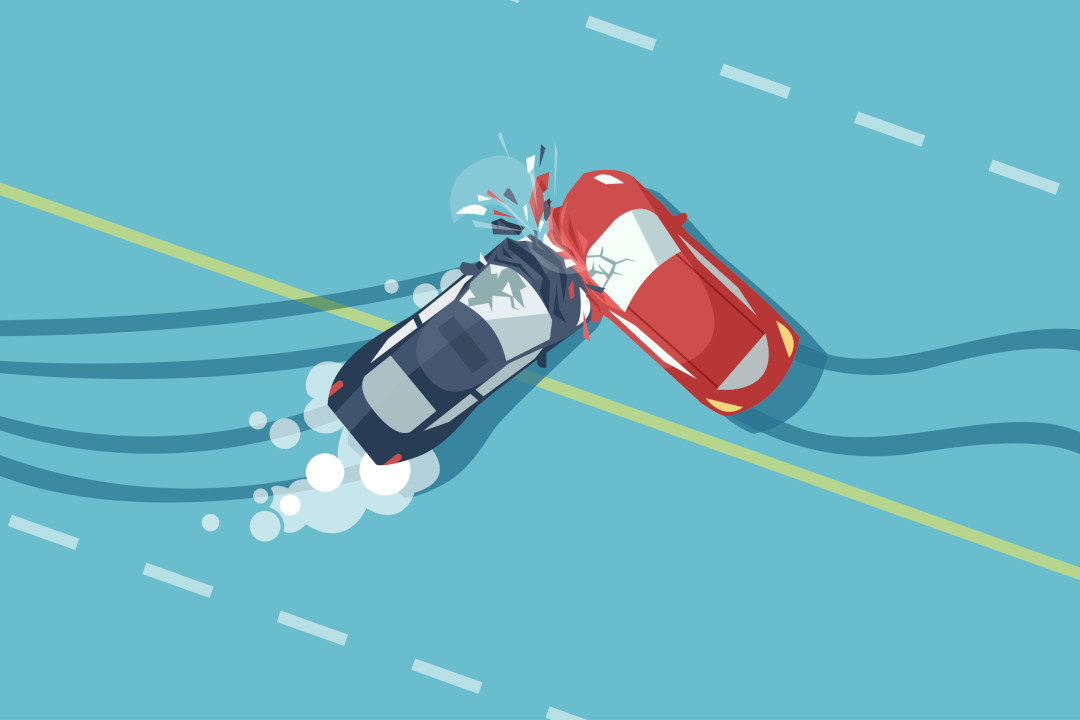
Appellate Division Allows Wrongful Death Suit Involving Uninsured Driver to Proceed
In the published opinion, Memudu v. Gonzalez, et. al., the Appellate Division declined to apply the statutory bar of N.J.S.A. 39:6A-4.5(a) to a plaintiff’s claim involving the second of two accidents occurring at the same location approximately a half hour apart and found that the decedent was not “operating” the uninsured vehicle at the time of the second collision. Id. at *2.
On October 26, 2019, the decedent was driving a 2007 Lexus southbound on the New Jersey Turnpike in Edison when he was rear-ended by a vehicle operated by defendant Khawaja Hameed. Id. at *3. As a result of the first collision, the decedent’s vehicle was disabled and left straddling the shoulder and left lane of the Turnpike. Id. at *3-4.
A passing tow truck operated by Brandon McMahon came upon the scene and began to render assistance. Id. at *3. Mr. McMahon provided that prior to the second accident, the decedent exhibited no signs of physical injury. Id. at *3-4.
The decedent then asked Mr. McMahon if he could borrow his cell phone light to search for his cell phone inside his Lexus. Id. at *4. As the decedent was searching for his cell phone, Mr. McMahon observed a Ford Transit Van driven by defendant Joshua M. Gonzalez crash into the front side of the Lexus. Ibid. Mr. McMahon then witnessed the decedent face down on the road outside of the vehicle. Ibid.
The decedent’s estate subsequently filed a complaint, alleging claims under the Wrongful Death Act and the Survivor Act. N.J.S.A. 2A:31-1 to -6; N.J.S.A. 2A:15-3. Ibid. Following discovery, the defendants moved for summary judgment asserting N.J.S.A. 39:6A-4.5(a) barred the plaintiff’s suit. Ibid. The trial court granted the motion as to the A-1 defendants but denied the other moving defendants’ motions. Id. at *4-5. The within appeal followed.
On appeal, the defendants argued, “the second impact occurred ‘as a direct result of decedent’s use and operation’ of the uninsured vehicle, and, therefore, the plaintiff should be barred from recovering economic or non-economic damages.” Id. at *7. The plaintiff countered the motion arguing that “the plain language of N.J.S.A. 39:6A-4.5(a) is clear and should not bar plaintiff’s claims because decedent was not ‘operating an uninsured vehicle.’” Id. at *7.
In deciding the matter, the court first reviewed the New Jersey Supreme Court’s decision in Aronberg v. Tolbert, where it was noted that N.J.S.A. 39:6A-4.5(a), “[o]n its face,…deprives an uninsured motorist of the right to sue for any loss caused by another, regardless of fault.” 207 N.J. 587, 598 (2011). Further, the appellate division reiterated that “[t]he statute’s self-evident purpose is not to immunize a negligent driver from a civil suit, but to give the maximum incentive to all motorists to comply with this State’s compulsory no-fault insurance laws.” Id. at *9 (quoting Aronberg supra at 598-99).
In declining to apply the statutory bar, the appellate division first noted that based upon the summary judgment record, the decedent’s vehicle was inoperable before the deadly collision and that a considerable amount of time had elapsed between the two accidents. Id. at *10. The court also noted that while the decedent had re-entered the vehicle, it was not with the intent to “operate” the vehicle but instead only to search for his cell phone. Ibid.
Additionally, the court distinguished the Perrelli v. Pastorelle matter cited by the defendants, finding the matter “far afield from the circumstances of the case before us” as the decedent’s vehicle was inoperable at the time of the second collision. Id. at *11. There, the plaintiff was actually operating her uninsured vehicle with a passenger when she stopped at a rest area. Ibid. After stopping, her friend took over driving and the plaintiff became the passenger. Ibid. Shortly thereafter, the two individuals were involved in an accident. Ibid. In applying the statutory bar of N.J.S.A. 39:6A-4.5(a) the Perrelli Court held that to find to the contrary could allow uninsured owners to “circumvent the statute by having an unsuspecting driver operate the uninsured vehicle.” Id. at *12.
Finally, the appellate division distinguished the closely related statutory bar found at N.J.S.A. 39:6A-4, which “requires insurers to provide PIP benefits to policy holders and family members as a result of an accident while occupying, entering into, alighting from or using an automobile.” Id. at *14. The court, however, found the plain language of N.J.S.A. 39:6A-4.5(a) to be much narrower than that of N.J.S.A. 39:6A-4, noting that the former statutory bar provides only the language “while operating an uninsured automobile.” Id. at *15 (emphasis in original).
Accordingly, Judges Joseph L. Marczyk, Mary Gibbons Whipple, and Morris G. Smith unanimously concluded that N.J.S.A. 39:6A-4.5(a) does not preclude the plaintiff’s Wrongful Death and Survivor claims.
Conclusion
If you have lost a family member due to someone else’s negligence or have a claim against the government and wish to discuss your legal options, Farrell & Thurman, P.C, offers a variety of convenient ways to schedule a free, no-pressure consultation. You may do so directly on our website (Schedule a Consult), via phone (609-924-1115), or by email (Contact Us).
